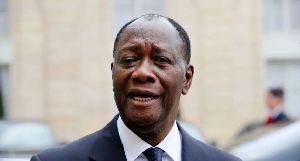When it first stroke, the world assumed the virus would be contained within the boundaries of China. Much like what happened with the 2015 Ebola outbreak in West Africa. World Health Organisation (WHO) first described it as an epidemic, allaying the fears of many, only to label it a pandemic some weeks later.
As the world battle the pandemic without any clear headway, Ghana keeps featuring in my thoughts. The country is seeing a sturdy surge in cases that could, in no time, become difficult to deal with. The frail health infrastructure of the country makes this scenario imminent.
How would Ghana respond in the coming weeks, as an increase in cases begin to overwhelm its limited health capacity? With many countries including India, US UK, and Italy undergoing some forms of lockdowns, imposing a lockdown in Ghana seems a reasonable step in the fight against COVID-19. However, in this article, I argue that not only will a lockdown be counterintuitive; it would also be a catastrophe for millions of Ghanaians when imposed.
Initially used by Chinese Authorities in Wuhan – the earliest epicentre of the disease, many countries have accepted and implemented some forms lockdown in dealing with COVID-19. According to a recent study from the Imperial College of London COVID-19 Response Team, the purpose of a lockdown is to reduce reproduction by restricting the movement of people.
President Akuffo Addo in his midnight COVID-19 address to the nation on Friday imposed a lockdown on four major cities in the country – Accra, Kumasi, Tema, Kasoa and Obuasi. Following the announcement, there was a mass of exodus of people trying to escape designated lockdown areas before the directive took effect on Monday at 1 am. The government failed to educate the public on the nuances of the president’s address. This led to panic buying in congested markets within lockdown areas. However, since the directive exempted markets and food vendors from restriction, there was absolutely no need for the panic buying.
Worse is the fact that no one can observe social distancing in congestion. These unintended outcomes have compromised government efforts at containing the spread of the virus. By relying on contact tracing, Ghana’s government is hoping to scale back the rate of infection. However, this task would now prove arduous. It is not possible for government to have a catalogue of all persons living with the virus. Therefore, through people carrying the virus but oblivious of it, the virus may have spread through congestion at the various markets within the lockdown areas. Those who escaped lockdown areas for the countryside are likely going to spread it there too. This should inform government to start mass testing of people. Contact tracing alone won’t cut it.
Before any talk of a lockdown, there must be some prerequisite that government must meet. Everyone under lockdown should have access to necessities like food, water, shelter, medicine etc. Moreover, because lockdowns are very ruinous, government must prioritize the poor and make these necessities free for them. According to a 2018 Ghana Living standards survey, 23.4 per cent of Ghanaians live in extreme poverty, as they cannot afford the cedi equivalent of $1 a day. Many Ghanaians captured by official figures as employed are actually under-employed. According to the 2015 labour force survey conducted by Ghana Statistical Service, six out of Ghana’s twelve million workforces are under ‘Vulnerable employment.’ Government has some paltry relief package for small and medium size business but nothing for the poor.
With Ghana’s total housing deficit standing at 2 million housing units, it is not surprising that 43 per cent of Ghana’s urban population live in slum. However, housing deficits are not much of a problem like the homelessness and slum dwelling they induces. Conditions in slums rarely change. People living in them rarely escape the vicious cycle of poverty and above all, are more prone to outbreak of contagious diseases.
A lockdown would be hard to enforce in Ghana’s slums or on the homeless. It would be out of sheer naivety to think we could protect millions of slum-dwellers from contracting the virus with a mere lockdown. Makeshift shelters in slums are lumped so closely together that observing ‘social distancing’ is impossible. Several hundreds of these dwellers share same facilities like toilets and baths. Slums by their nature would make it easier for coronavirus to proliferate among inhabitants. Therefore, government’s restriction of people in them is after all, a bad idea.
Having establishing a voluntary COVID-19 Fund, the government is neglecting the fate of the poor to the benevolence of philanthropists. However, without enough ‘relief packages’, forcing the poor to stay home under a lockdown is actually a hunger sentence. For the slum dwellers, it means a high risk of infection.
Nkrumahist Circle
Opinions of Friday, 3 April 2020
Columnist: Amodani Gariba















